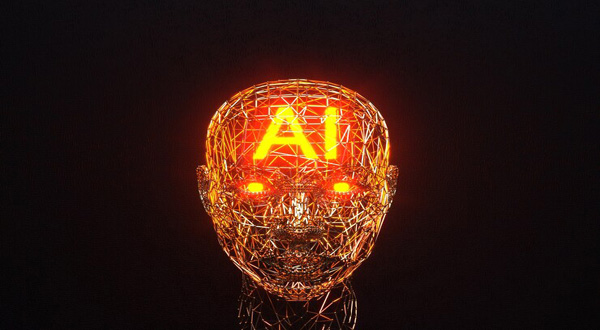Artificial Intelligence Definition: Understanding the Future of Technology
- Update Time : Monday, March 11, 2024
- 26 Time View

Artificial Intelligence Definition: Understanding the Future of Technology: In today’s fast-paced world, technology continues to evolve at an unprecedented rate, with one of the most intriguing advancements being artificial intelligence (AI). But what exactly is artificial intelligence, and how does it impact our lives? Let’s embark on a journey to unravel the mysteries of AI and explore its implications for the future.
Table of Contents
| Sr | Headings |
|—–|————————–|
| 1 | What is Artificial Intelligence? |
| 2 | Types of Artificial Intelligence |
| 3 | How Does Artificial Intelligence Work? |
| 4 | Applications of Artificial Intelligence |
| 5 | Ethical Considerations |
| 6 | AI in Everyday Life |
| 7 | The Future of Artificial Intelligence |
| 8 | Conclusion |
| 9 | FAQs |
- What is Artificial Intelligence?
Artificial intelligence, often abbreviated as AI, refers to the simulation of human intelligence in machines that are programmed to think and learn like humans. This technology enables computers to perform tasks that typically require human intelligence, such as visual perception, speech recognition, decision-making, and language translation.
- Types of Artificial Intelligence
Narrow AI:
Narrow AI, also known as Weak AI, is designed to perform a specific task, such as virtual assistants like Siri or Alexa, autonomous vehicles, and facial recognition systems.
General AI:
General AI, or Strong AI, possesses the ability to understand, learn, and apply its intelligence across a wide range of tasks, similar to human intelligence. However, achieving General AI remains a significant challenge and is still largely theoretical.
Read More: The Pros and Cons of Artificial Intelligence PDF: Exploring the Impact on Everyday Life
- How Does Artificial Intelligence Work?
Artificial intelligence operates through the use of algorithms and machine learning techniques. These algorithms analyze vast amounts of data to identify patterns and make predictions or decisions based on the available information.
- Applications of Artificial Intelligence
Healthcare:
AI is revolutionizing the healthcare industry by assisting in diagnostics, personalized treatment plans, and drug discovery.
Finance:
In finance, AI algorithms are utilized for fraud detection, algorithmic trading, and customer service through chatbots.
Education:
AI-powered learning platforms offer personalized learning experiences, adaptive tutoring, and student progress tracking.
- Ethical Considerations
As AI becomes more prevalent in society, ethical considerations regarding privacy, bias in algorithms, and job displacement must be addressed to ensure responsible development and deployment of AI technologies.
- AI in Everyday Life
From virtual assistants managing our schedules to recommendation algorithms suggesting movies or products, AI has seamlessly integrated into our daily lives, enhancing convenience and efficiency.
- The Future of Artificial Intelligence
The future of AI holds endless possibilities, from advancements in robotics and automation to breakthroughs in healthcare, transportation, and beyond. As technology continues to evolve, AI will play an increasingly integral role in shaping our world.
Read More: Embracing Artificial Intelligence: Enhancing Everyday Life
- Conclusion
Artificial intelligence represents a groundbreaking technological advancement with far-reaching implications for society. By understanding the fundamentals of AI and its potential applications, we can embrace its benefits while navigating the ethical considerations associated with its widespread adoption.
- FAQs
Q: What are the main challenges in developing artificial intelligence?
A: Developing artificial intelligence faces challenges such as data bias, ethical concerns, cybersecurity risks, and the complexity of mimicking human cognition.
Q: Can artificial intelligence replace human jobs?
A: While AI may automate certain tasks, its impact on job displacement depends on various factors such as the nature of the job, level of AI advancement, and the ability of humans to adapt to new roles.
Q: Is artificial intelligence dangerous?
A: While AI presents ethical and societal challenges, its dangers are often exaggerated in popular media. Responsible development and regulation can mitigate potential risks.
Q: How does artificial intelligence learn?
A: AI learns through machine learning algorithms that analyze data, identify patterns, and adjust their behavior based on feedback, similar to how humans learn from experience.
Q: What are the benefits of artificial intelligence?
A: Artificial intelligence offers numerous benefits, including increased efficiency, improved decision-making, enhanced personalization, and advancements in various fields such as healthcare, finance, and transportation.
As we delve deeper into the realm of artificial intelligence, it’s essential to approach this transformative technology with curiosity, caution, and a commitment to ethical innovation. By harnessing the power of AI responsibly, we can unlock its full potential to improve lives and shape the future for generations to come.












